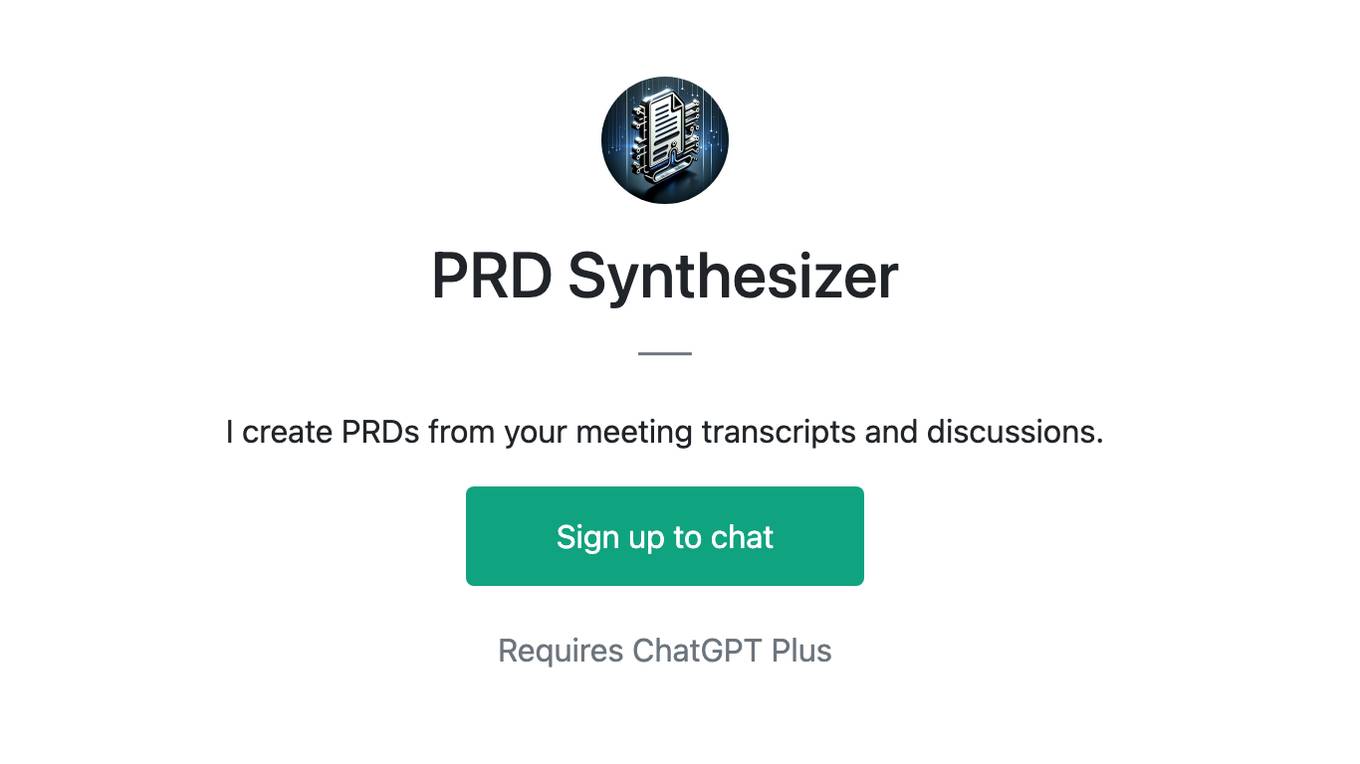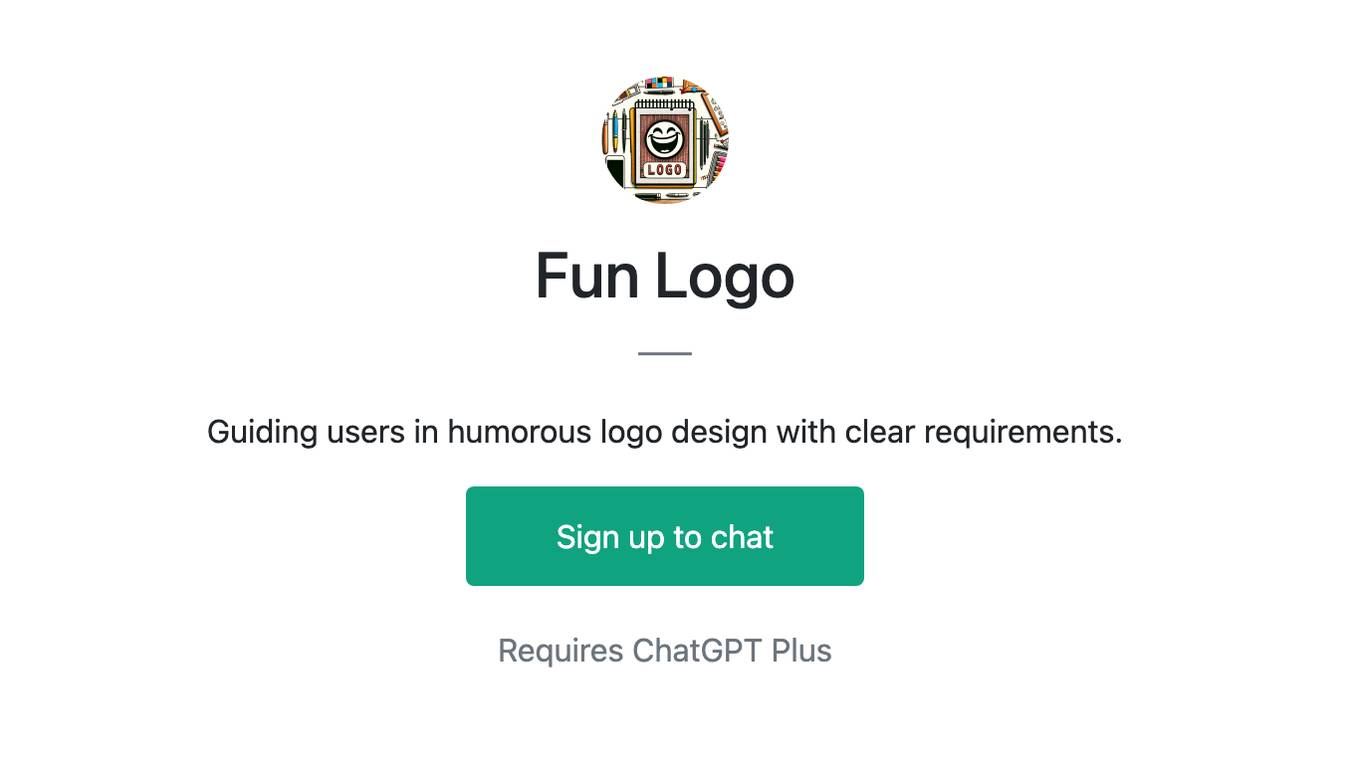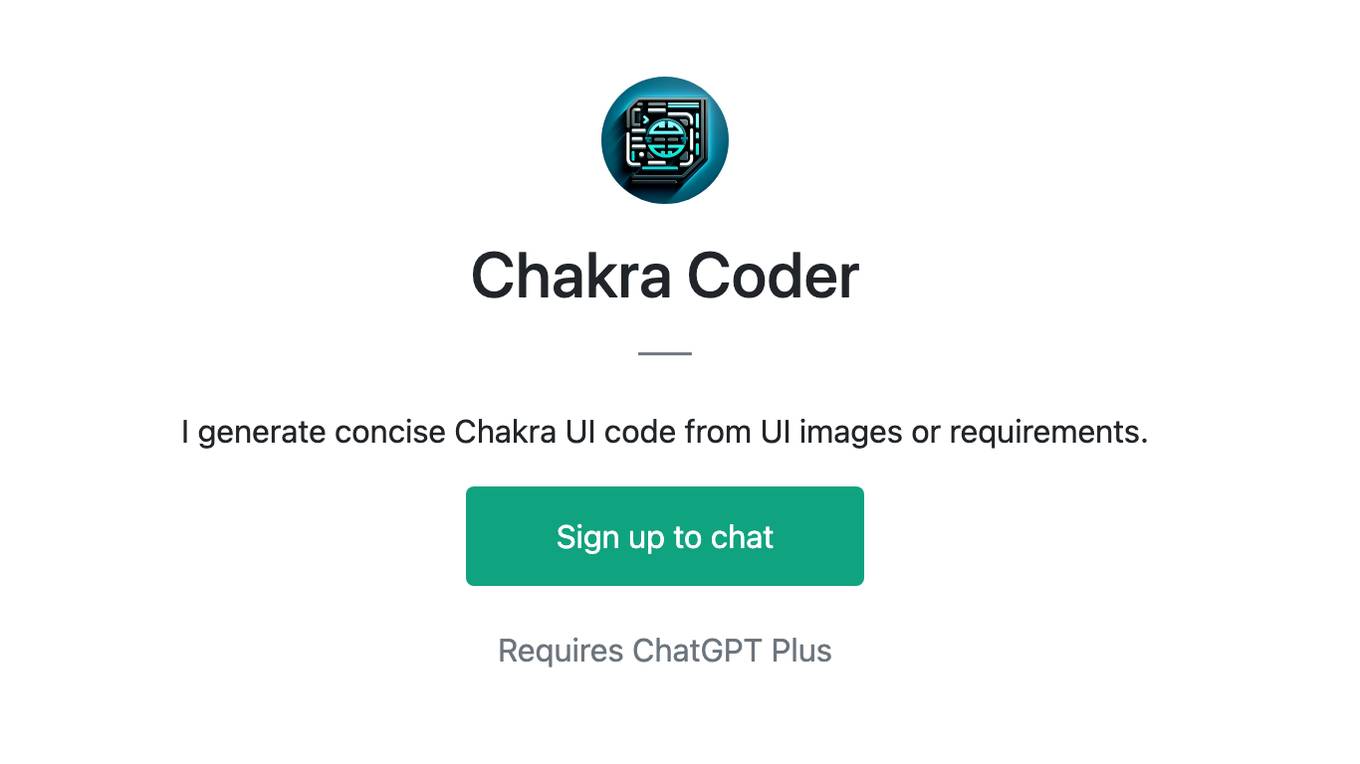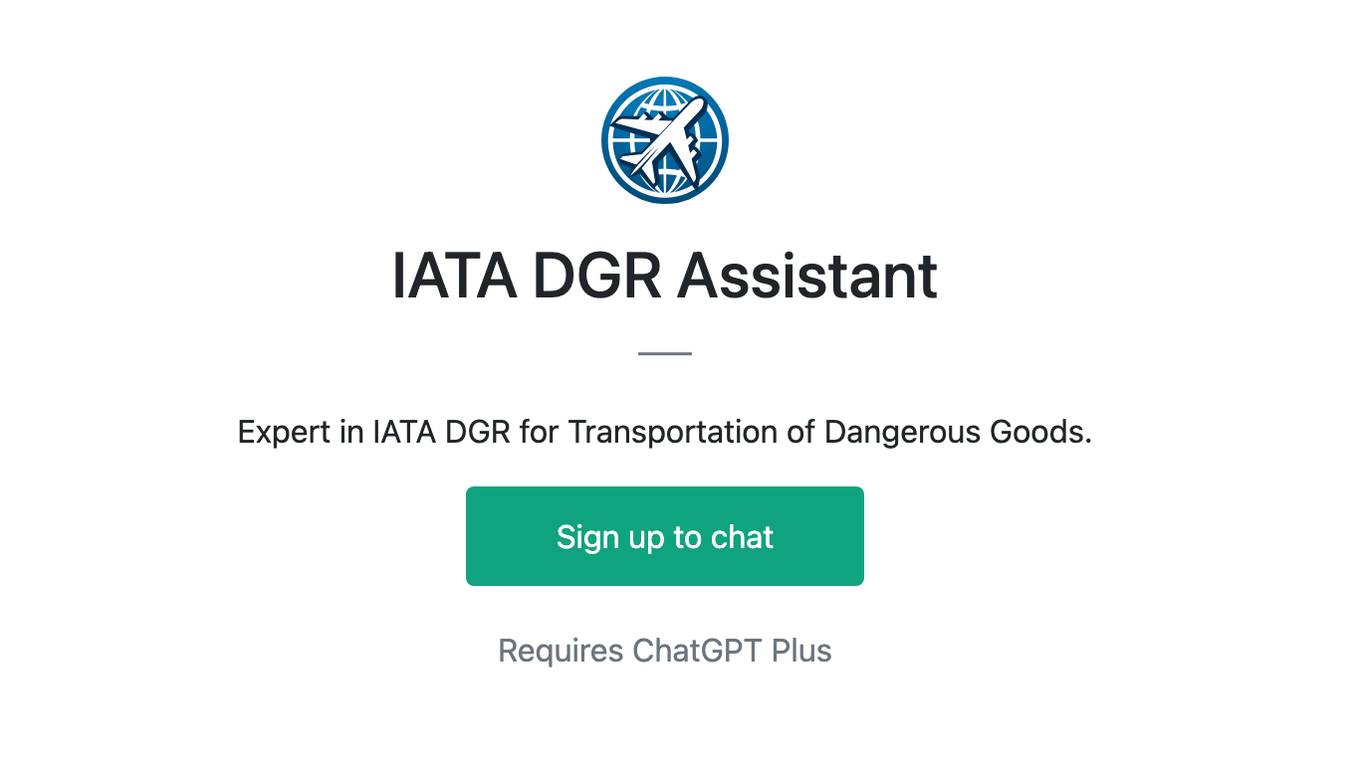Best AI tools for< Create Requirements >
20 - AI tool Sites
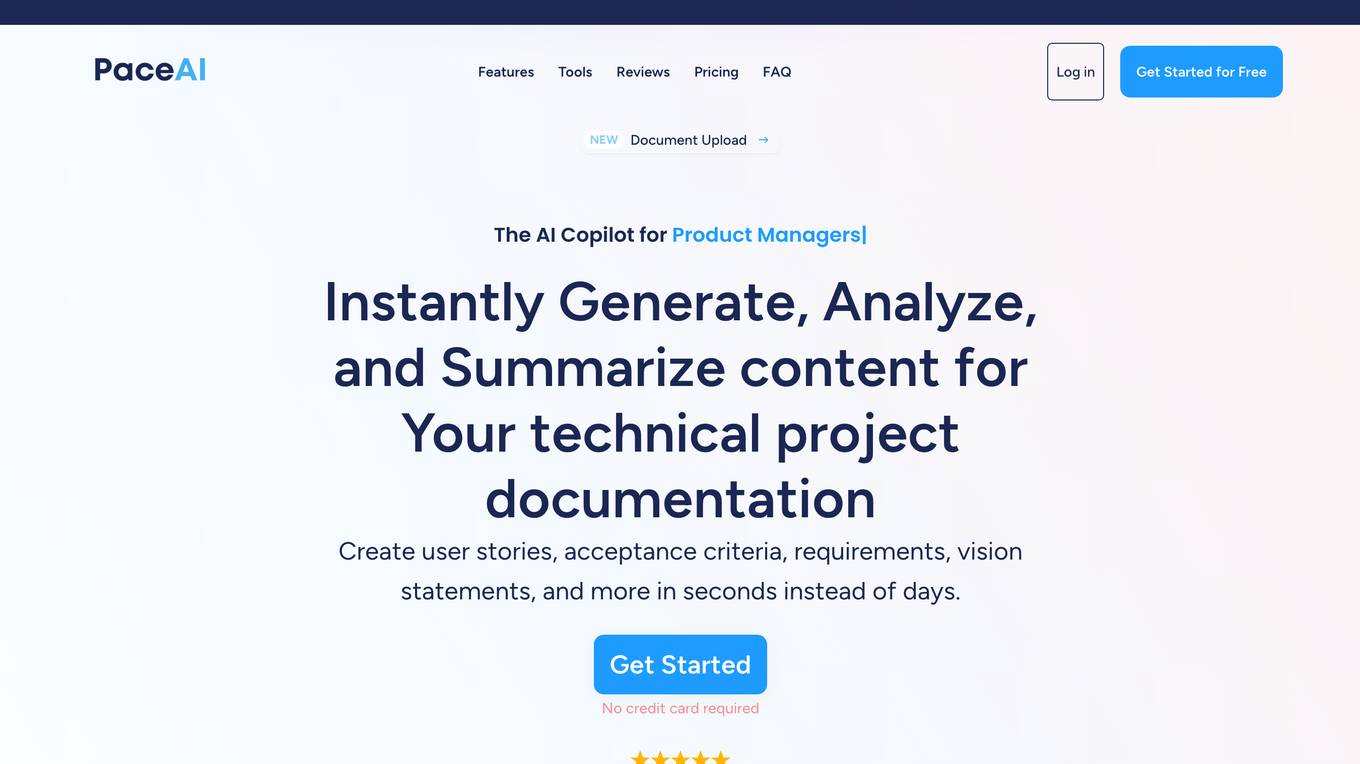
PaceAI
PaceAI is an AI assistant designed for IT professionals to generate, analyze, and simplify software documentation on IT projects. It uses advanced generative AI models to understand the user's vision, analyze requirements, and automatically generate clear, concise software documentation tailored to the specific IT project. With 35+ powerful AI tools, PaceAI assists in every phase of the project, from planning to deployment.
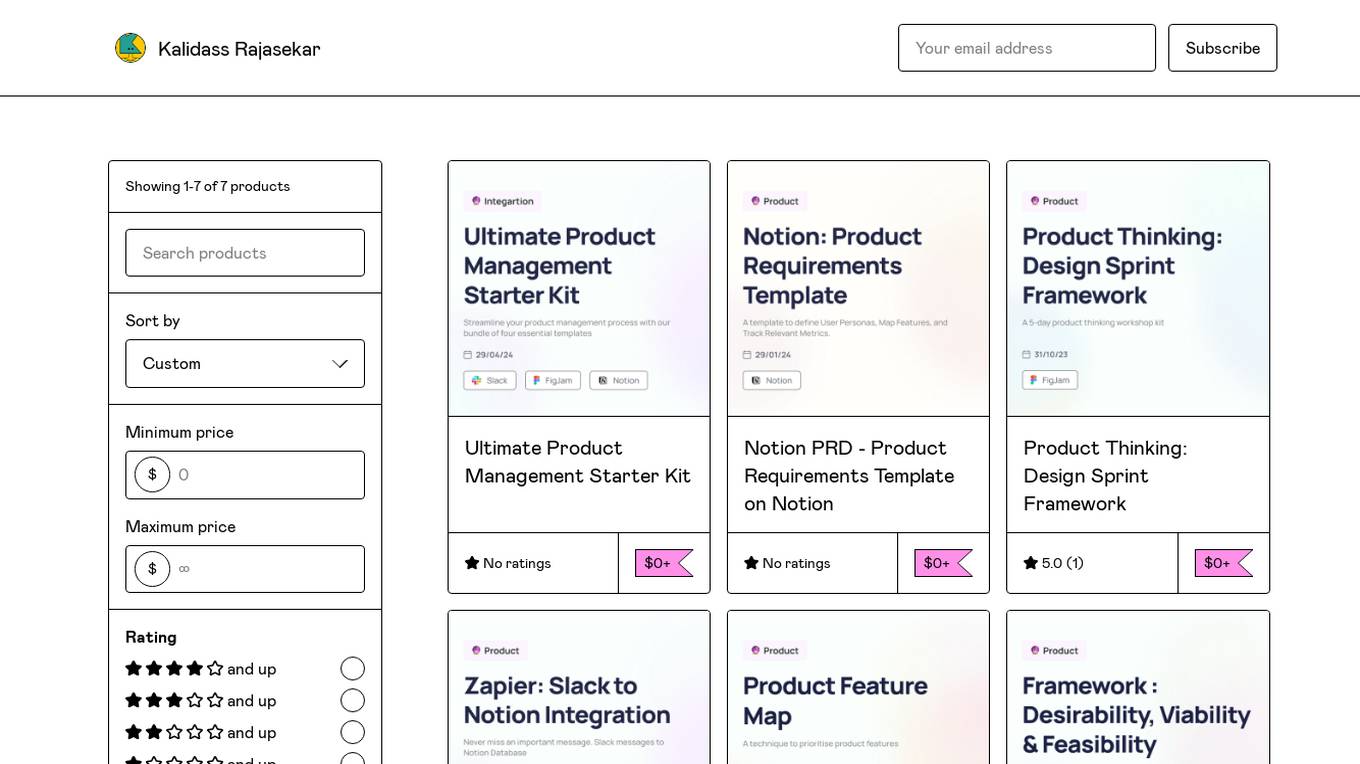
Product Management Hub
The website offers a range of products related to product management, design sprint frameworks, and integrations like ChatGPT Product Co-Pilot for Slack. It provides resources and tools for product managers and teams to enhance their product development process. Users can find templates, frameworks, and integrations to streamline their product management workflow and improve collaboration.

ChatPRD
ChatPRD is an AI Copilot for Product Work that helps product managers, VPs, founders, and teams without product managers to create great product requirements documents efficiently. It acts as an AI Chief Product Officer, providing feedback, coaching, and generating PRDs from simple ideas. The tool aims to save time, improve productivity, and enhance the quality of product management work.

AiPassportPhotos
AiPassportPhotos is an AI-powered online tool that allows users to create professional-grade passport and visa photos compliant with official requirements. The tool uses AI technology to intelligently adjust and format photos, saving time and money by enabling users to generate digital biometric photos online in seconds. Users can upload their photos, crop them automatically, and download printable templates for various document types, ensuring 100% acceptance of photos. AiPassportPhotos offers a cost-effective, time-saving, and convenient solution for creating fully compliant passport photos from the comfort of home.
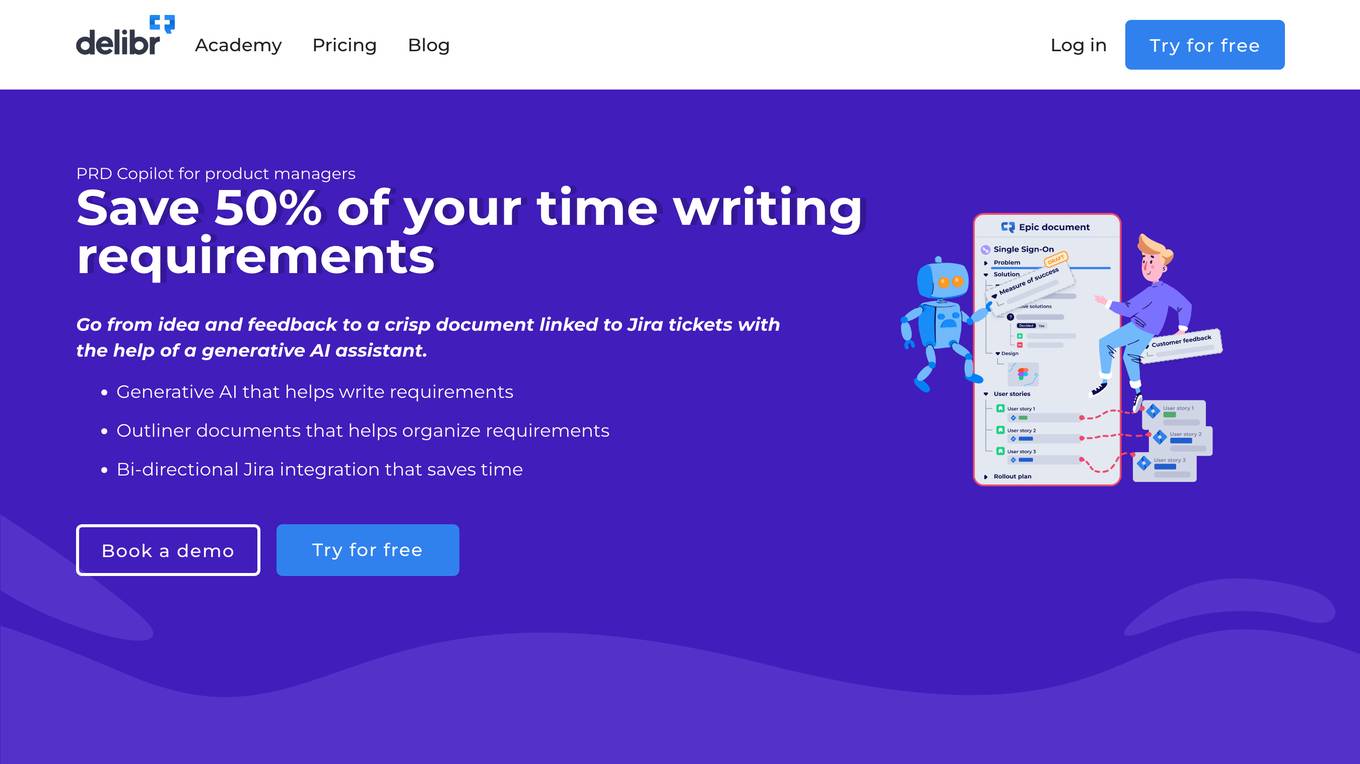
Delibr
Delibr is a document-writing solution with generative AI baked in. Through interviewing and coaching over 500 product leaders, we've learned what's important and used it to train our AI. Delibr offers a range of AI-enhanced product templates, including PRDs, user personas, and strategy documents. Each template is designed to help you create high-quality documents that stand out. Delibr also includes an AI Copilot assistant that can review your documents, suggest impactful changes, and offer insights on comments. With Delibr, you can save time writing requirements, organize your ideas, and track your progress. Delibr is trusted by product teams around the world, including Storytel, Nectarine Health, RunaHR, and DecisionLink.
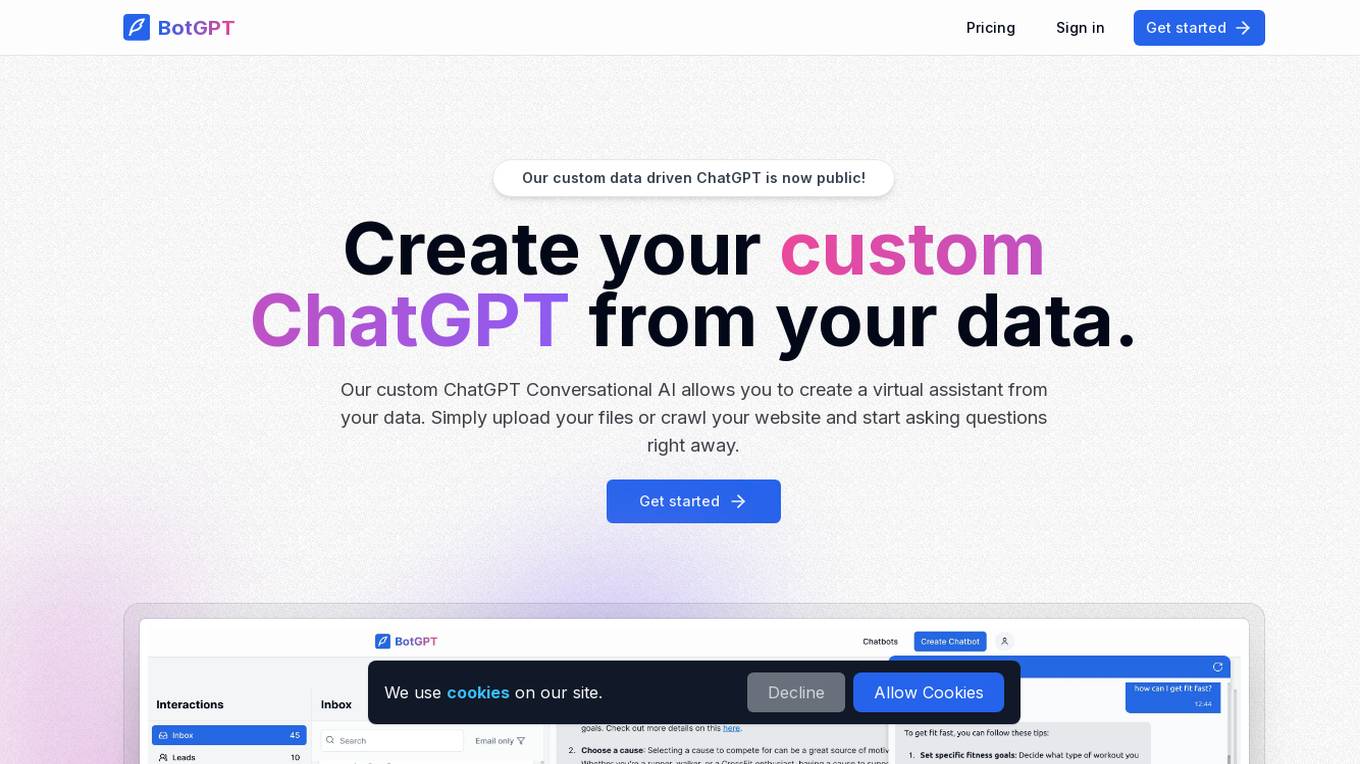
BotGPT
BotGPT is a 24/7 custom AI chatbot assistant for websites. It offers a data-driven ChatGPT that allows users to create virtual assistants from their own data. Users can easily upload files or crawl their website to start asking questions and deploy a custom chatbot on their website within minutes. The platform provides a simple and efficient way to enhance customer engagement through AI-powered chatbots.

Rostrio
Rostrio is an online platform that allows users to easily create perfect passport photos in just a few simple steps. The photos generated are suitable for official documents such as passports, IDs, and driver's licenses. Users can take the photo using their smartphone, tablet, or camera, and choose from professional, compliant passport photos delivered by mail or email at affordable prices. Rostrio ensures that the passport photos meet all the necessary requirements, providing a convenient and eco-friendly option compared to traditional photography services.
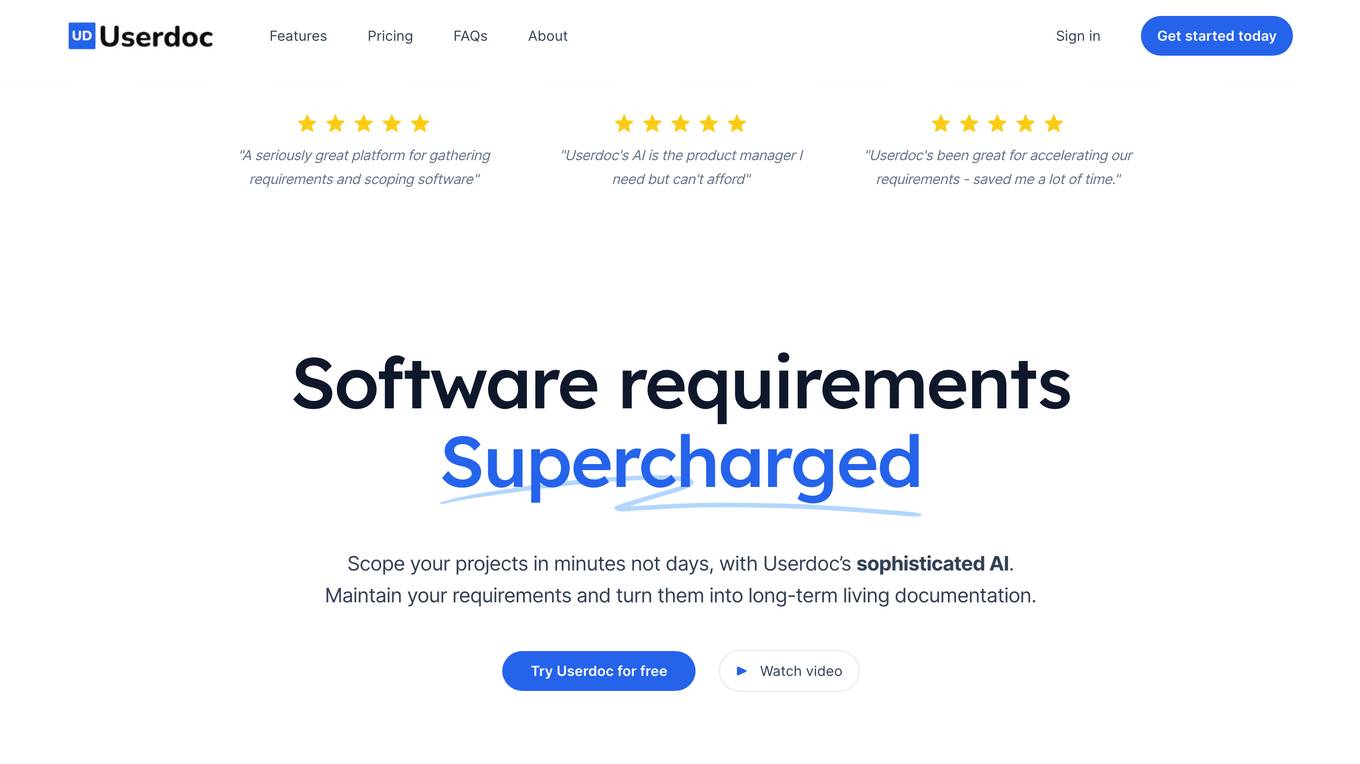
Userdoc
Userdoc is a software requirements management tool that uses AI to help teams gather, organize, and maintain their requirements. It offers a variety of features to help teams streamline the requirements process, including AI-powered scoping, detailed user story and acceptance criteria generation, persona management, user journey mapping, and integrations with popular project management tools. Userdoc is designed to help teams save time, improve communication, and build better software.

AI Tattoo
AI Tattoo is a free online tool that allows users to generate unique and creative tattoo designs using artificial intelligence technology. Users can input their tattoo ideas, choose from various tattoo styles and shapes, and create custom tattoo designs in seconds. The tool provides inspiration for tattoo enthusiasts and helps them turn their ideas into reality without the need for copying existing designs. AI Tattoo stands out for its user-friendly interface, free usage times, and advanced AI technology.

BetterWaifu
BetterWaifu is an AI tool that serves as an NSFW AI Generator and Imageboard. It is designed to create high-quality hentai images based on user preferences. The tool boasts of understanding user requirements accurately to generate desired content. BetterWaifu offers a range of features and functionalities to enhance the user experience in creating explicit content. The platform is committed to providing a safe and private environment for users to explore their creative desires.
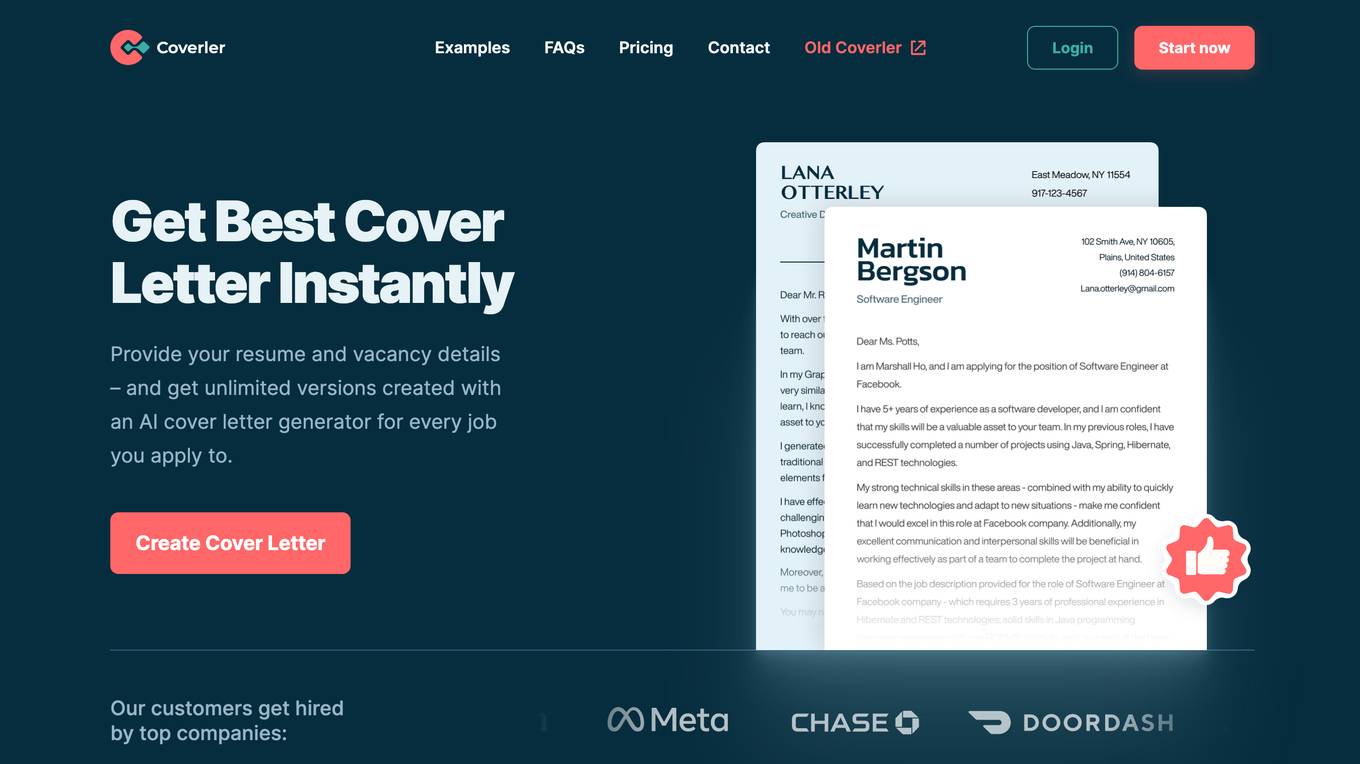
Coverler
Coverler is an AI-powered cover letter generator that helps job seekers create unique and tailored cover letters for every job application. With Coverler, you can simply provide your resume and the job description, and the AI will generate a cover letter that highlights your relevant skills and experience, and matches the specific requirements of the job you're applying for. Coverler's AI technology ensures that your cover letter is not only unique and relevant, but also error-free and well-written.
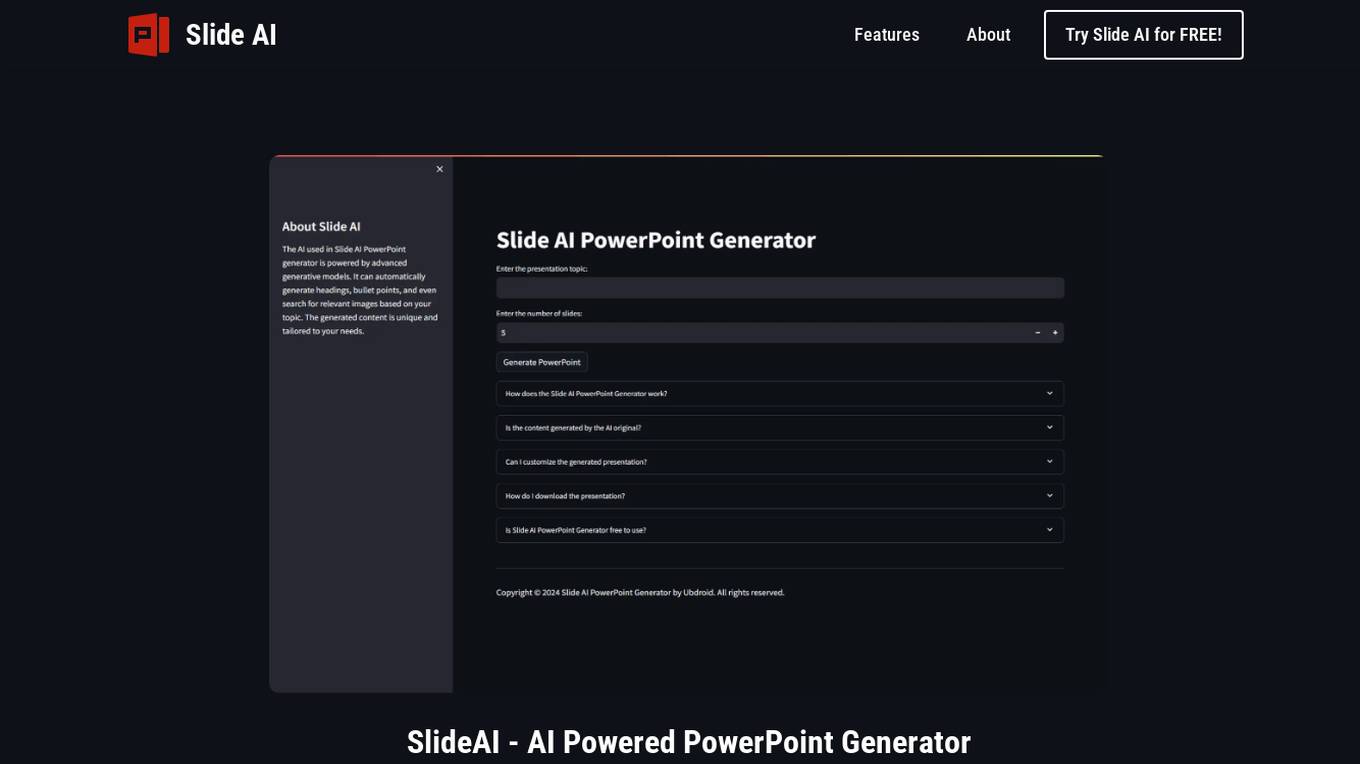
SlideAI
SlideAI is an AI-powered presentation generator that helps users create professional and engaging presentations in minutes. It utilizes advanced AI technology to generate unique content tailored to specific needs, saving time and effort. With SlideAI, users can automatically generate headings, bullet points, and search for relevant images to create compelling slides. The AI algorithms ensure that the generated content is unique and tailored specifically to the presentation topic and requirements. SlideAI leverages state-of-the-art generative models to produce high-quality content for PowerPoint presentations.
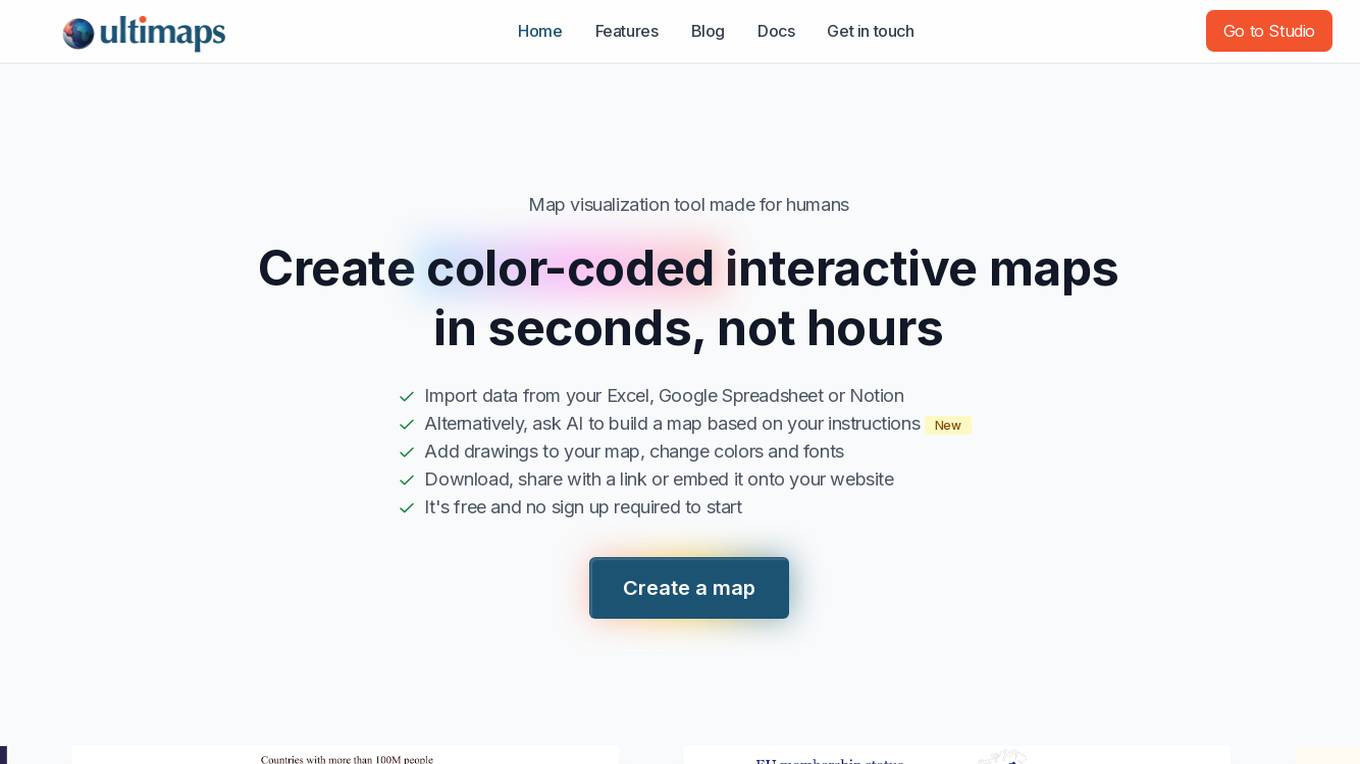
Ultimaps
Ultimaps is an AI-powered map visualization tool designed for humans to create color-coded interactive maps in seconds. Users can import data from Excel, Google Spreadsheet, or Notion, or instruct the AI to build a map based on their requirements. The tool allows users to add drawings, change colors and fonts, and easily download, share, or embed the maps. Ultimaps offers features like automatic color-coding based on imported data, customization options, auto-saving of visualizations, and the ability to create interactive maps without any coding. It is a user-friendly platform suitable for various mapping needs.
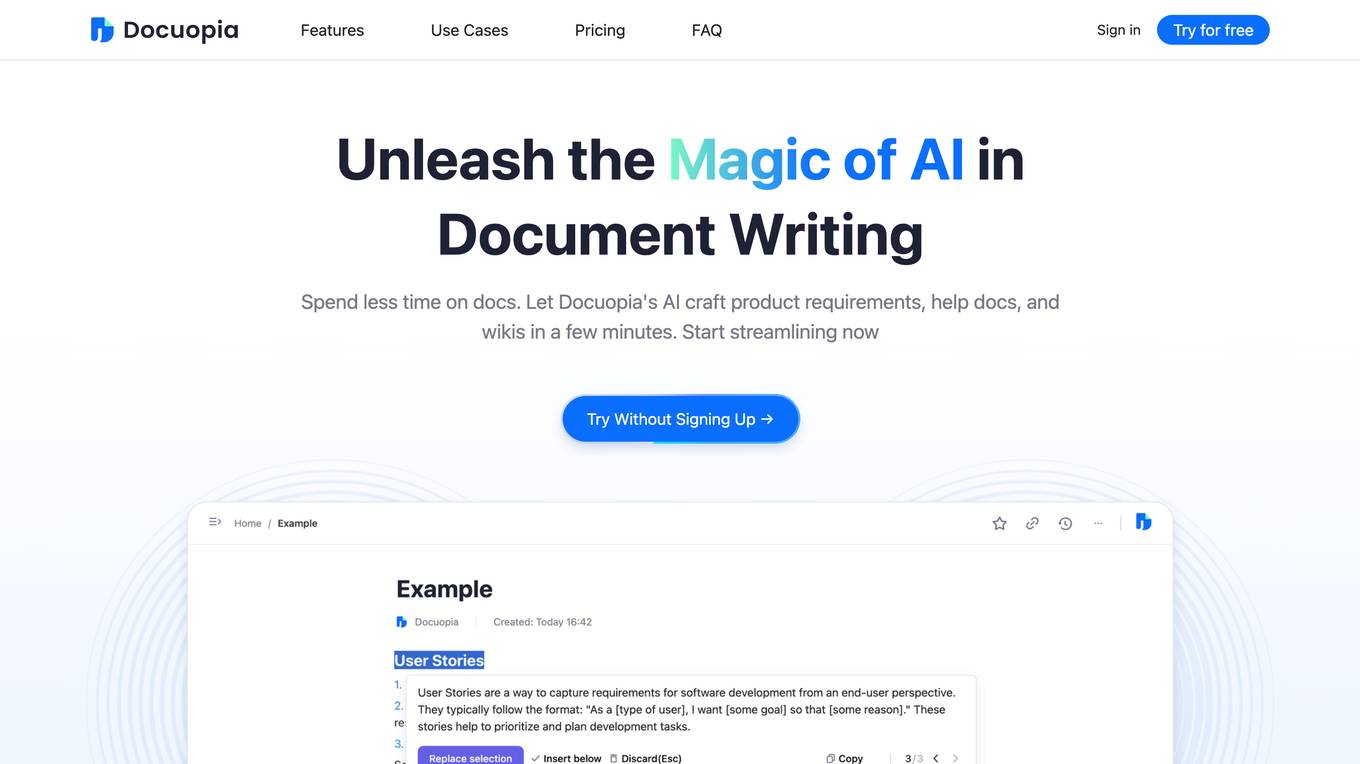
Docuopia
Docuopia is an AI-powered document assistant that helps teams write better documents, faster. With Docuopia, you can generate product requirements, help docs, and wikis in minutes, using AI technology. Docuopia also offers real-time collaboration, version control, and personalized optimization, making it the perfect tool for teams of all sizes.
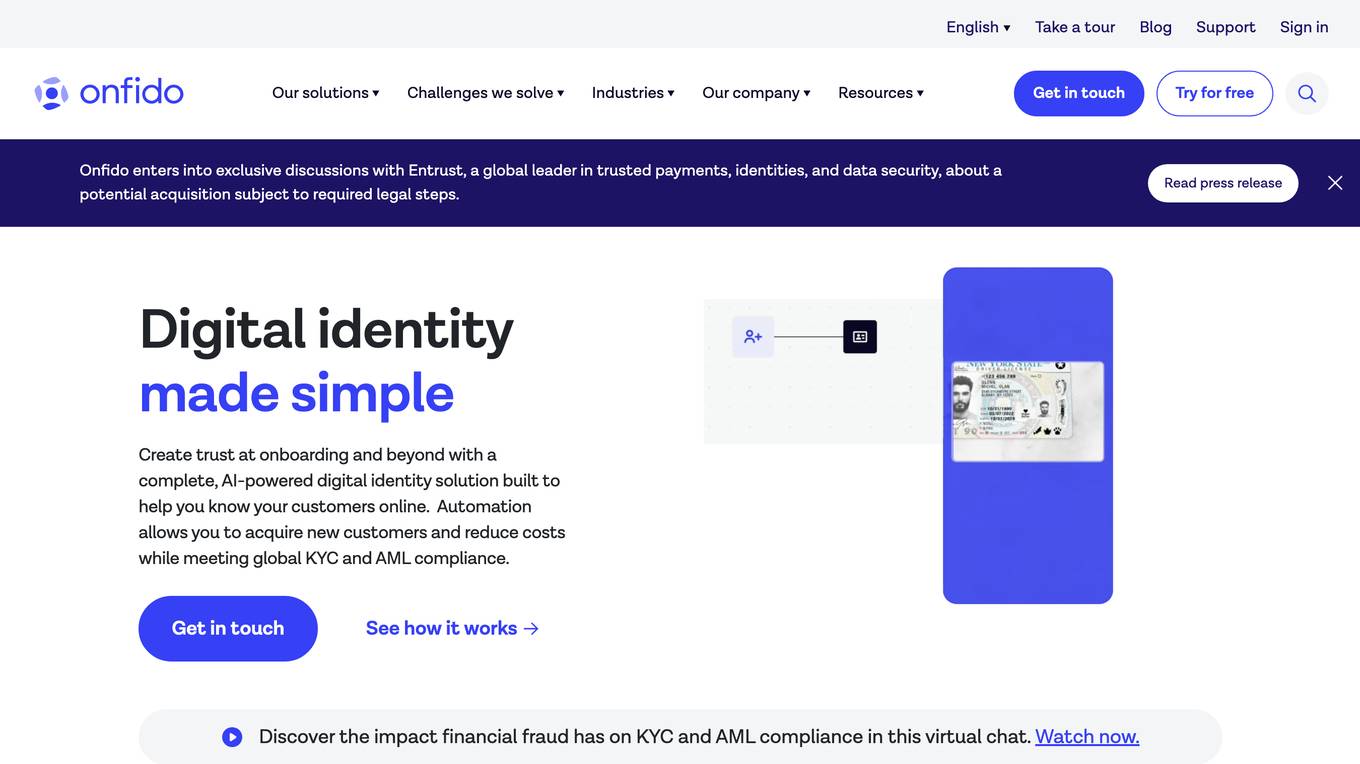
Onfido
Onfido is a digital identity verification provider that helps businesses verify the identities of their customers online. It offers a range of products and services, including document verification, biometric verification, data verification, and fraud detection. Onfido's solutions are used by businesses in a variety of industries, including financial services, gaming, healthcare, and retail.

Viggle AI
Viggle AI is a cutting-edge platform that allows users to effortlessly transform text into stunning 3D character animations. Powered by advanced JST-1 technology, this tool bridges the gap between professionals and hobbyists, offering a user-friendly interface for creating high-quality animations. With features like physics-based realism, community support, and a Discord server for collaboration, Viggle AI revolutionizes the animation creation process. Users can access the platform instantly via the web, join the vibrant creator community, and leverage the Viggle Bot for streamlined animation workflows.
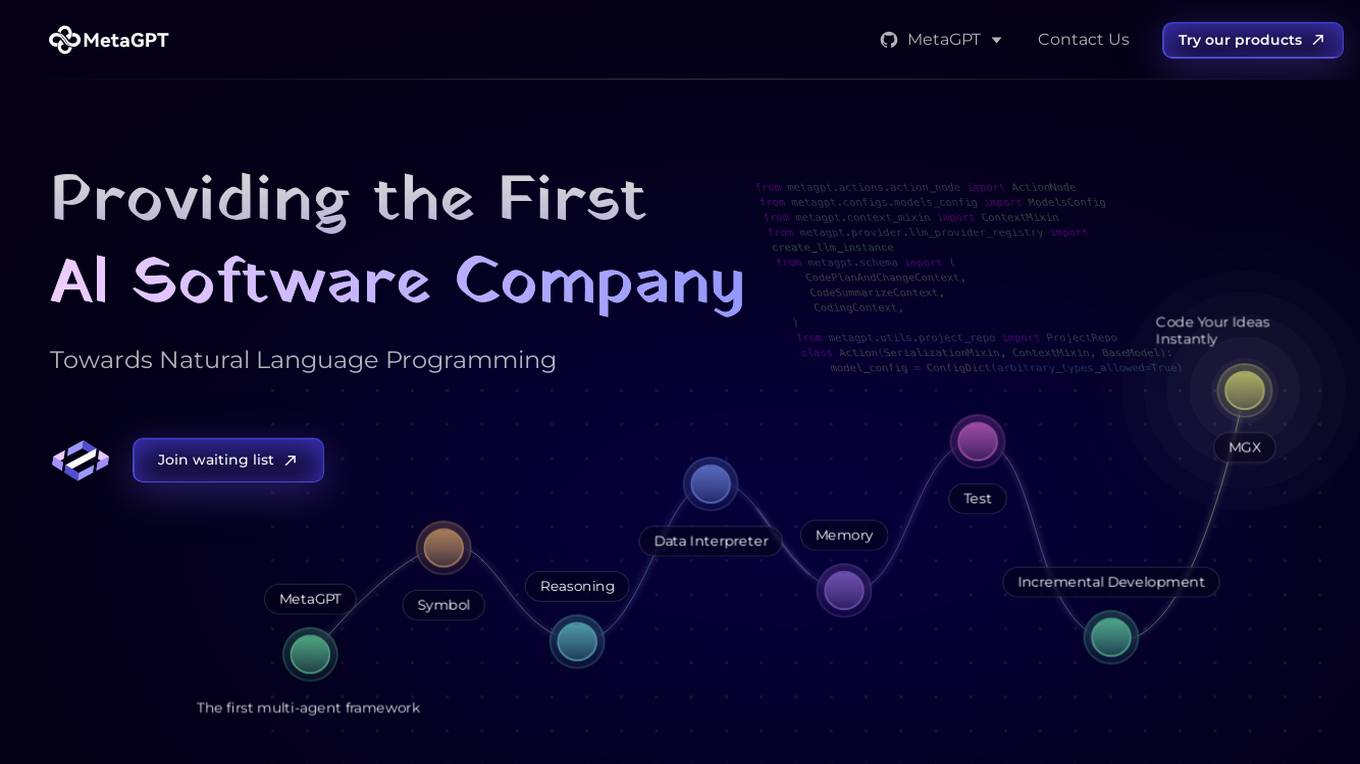
MetaGPT
MetaGPT is an advanced AI tool that leverages the power of natural language processing to generate human-like text. It uses the latest deep learning models to understand and produce text in various styles and tones. With MetaGPT, users can easily create content for articles, essays, emails, and more with just a few clicks. The tool is designed to assist writers, marketers, students, and anyone looking to enhance their writing productivity and creativity.
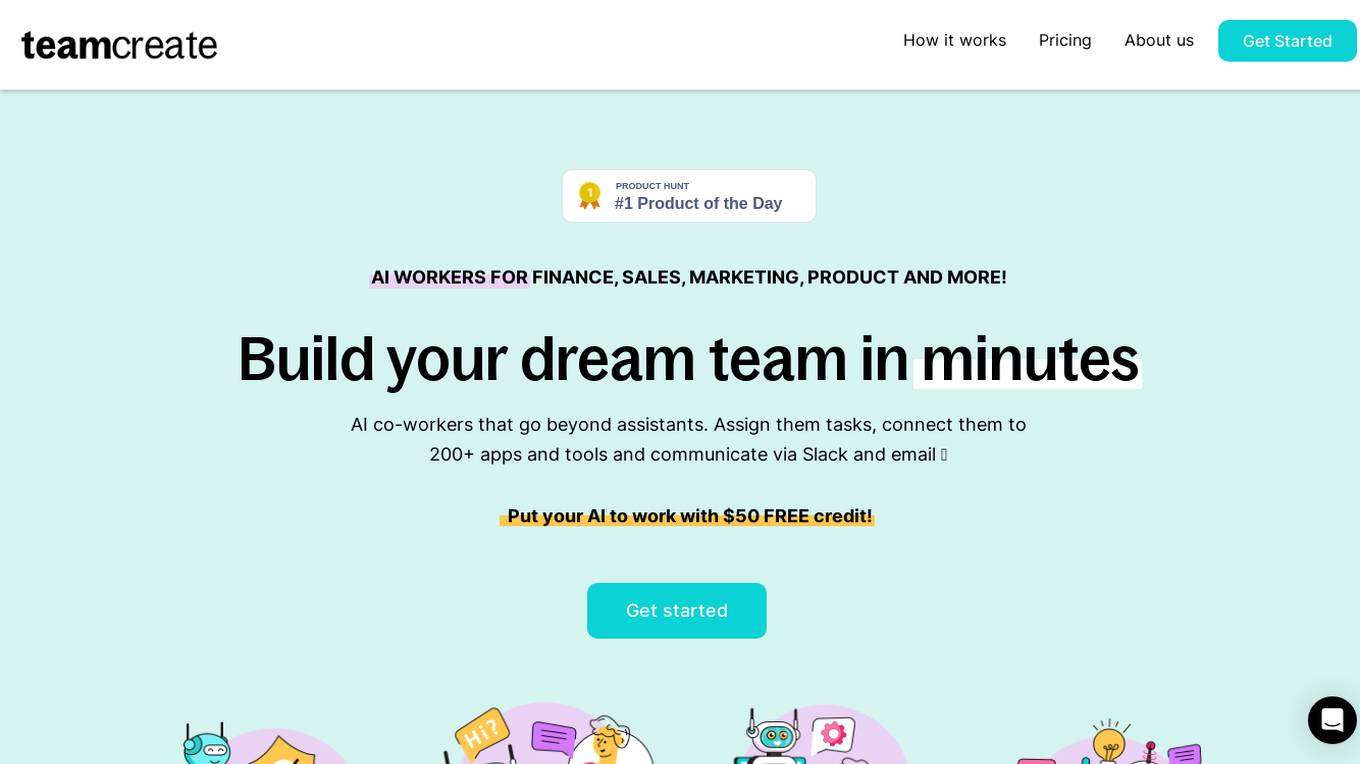
TeamCreate AI
TeamCreate AI is an AI tool that allows users to build their dream AI team in minutes. It offers AI co-workers that can be customized for various roles in Sales, Marketing, Finance, Product, Support, Operations, and more. Users can assign tasks, connect AI workers to 200+ apps and tools, and communicate via Slack and email. TeamCreate AI aims to help businesses scale rapidly without financial constraints and time-consuming recruitment processes.
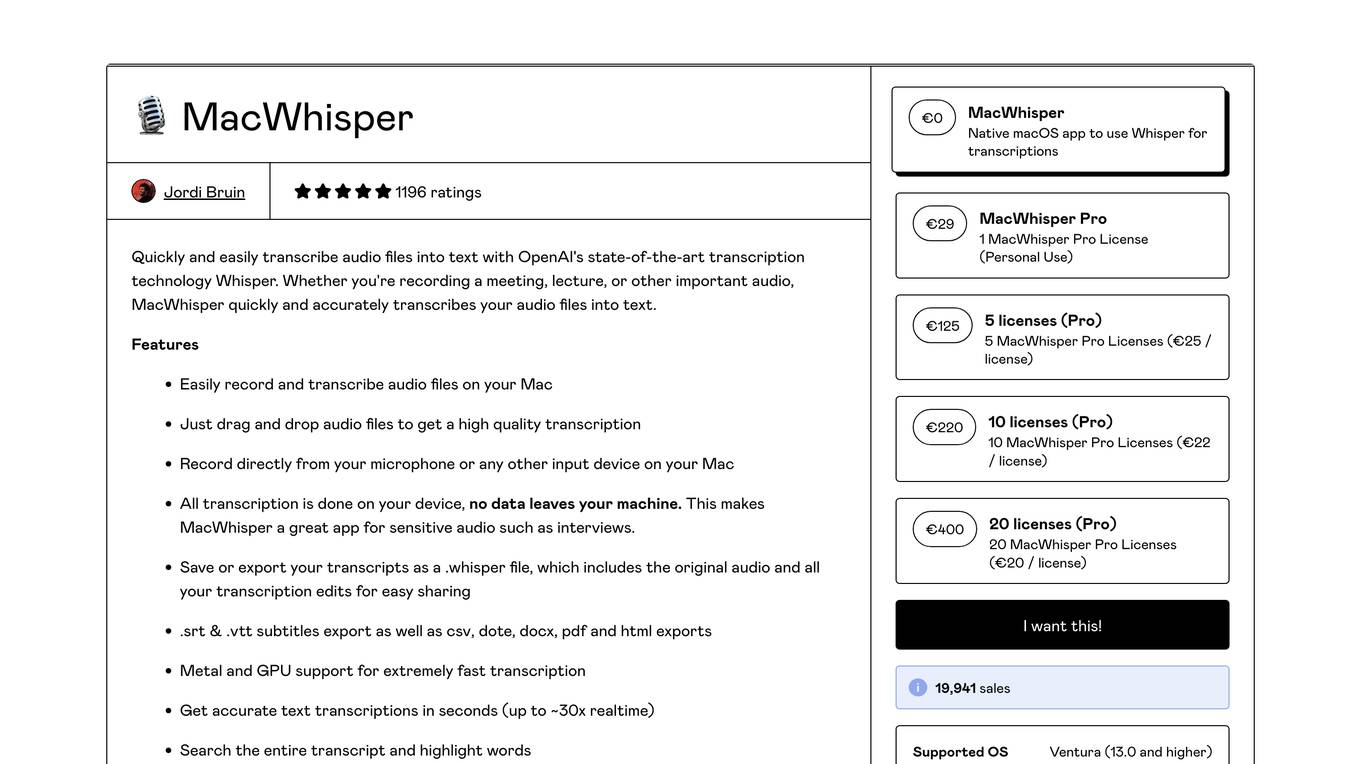
MacWhisper
MacWhisper is a native macOS application that utilizes OpenAI's Whisper technology for transcribing audio files into text. It offers a user-friendly interface for recording, transcribing, and editing audio, making it suitable for various use cases such as transcribing meetings, lectures, interviews, and podcasts. The application is designed to protect user privacy by performing all transcriptions locally on the device, ensuring that no data leaves the user's machine.
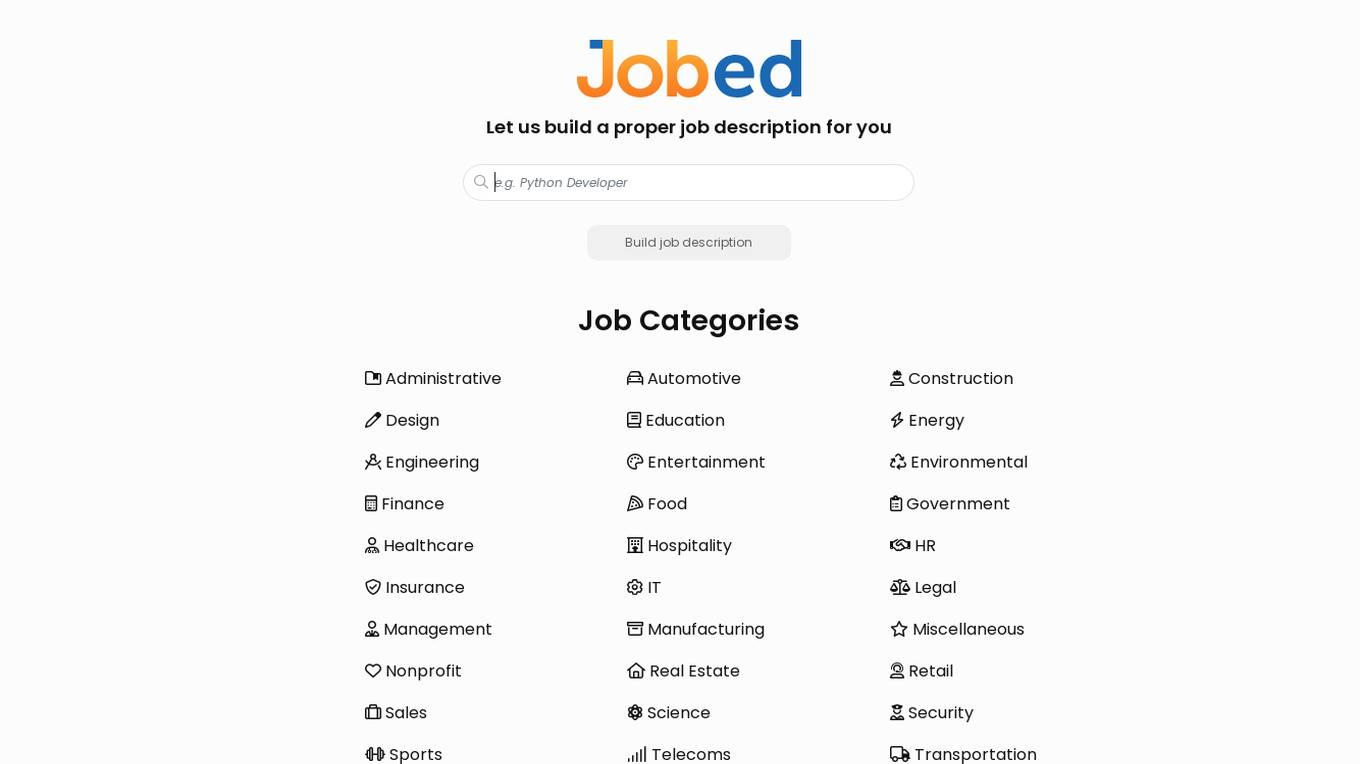
Jobed
Jobed is an AI-powered job description generator that helps users create tailored job descriptions quickly and efficiently. By leveraging artificial intelligence technology, Jobed streamlines the process of crafting job postings for various industries and job categories. Users can simply input their requirements and preferences, and Jobed will generate a comprehensive job description that meets their needs. With Jobed, businesses and recruiters can save time and effort in creating job listings, ensuring that they attract the right candidates for the position.
0 - Open Source AI Tools
20 - OpenAI Gpts
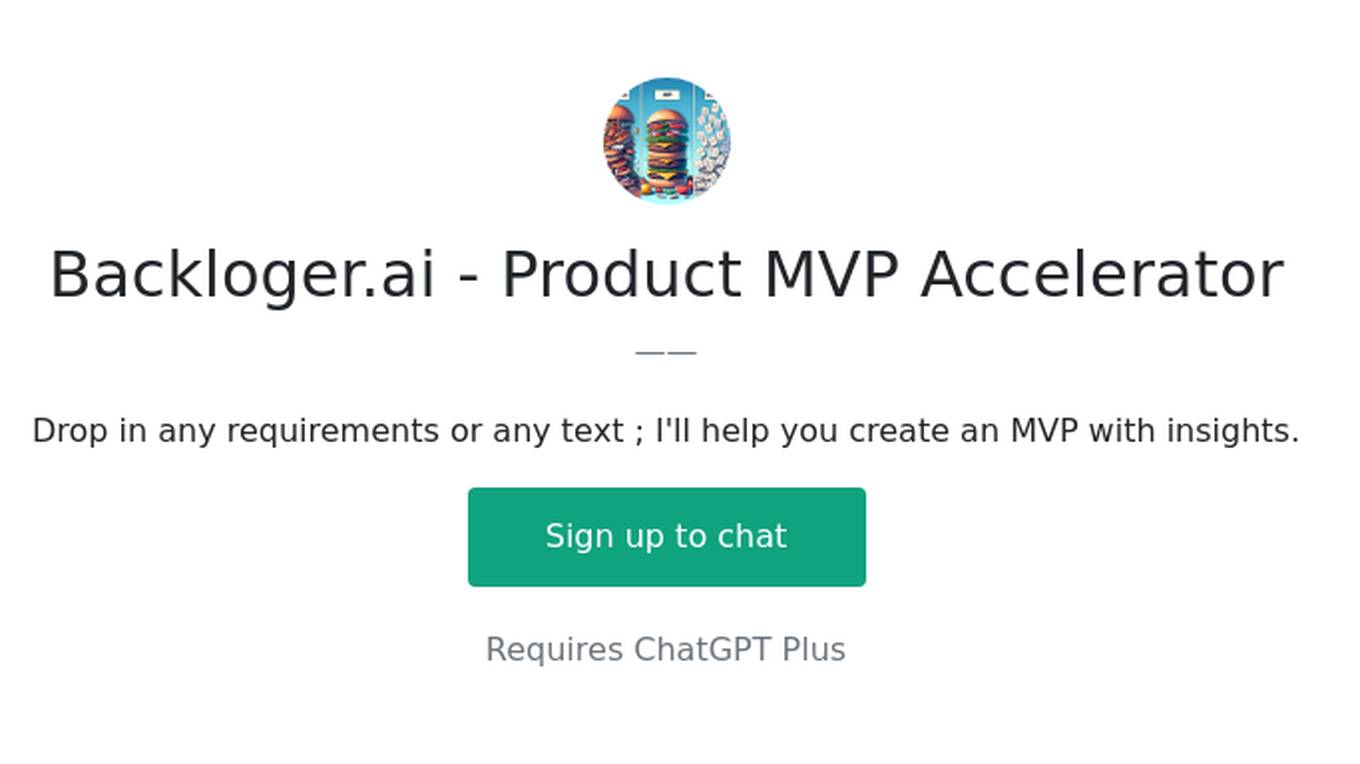
Backloger.ai - Product MVP Accelerator
Drop in any requirements or any text ; I'll help you create an MVP with insights.
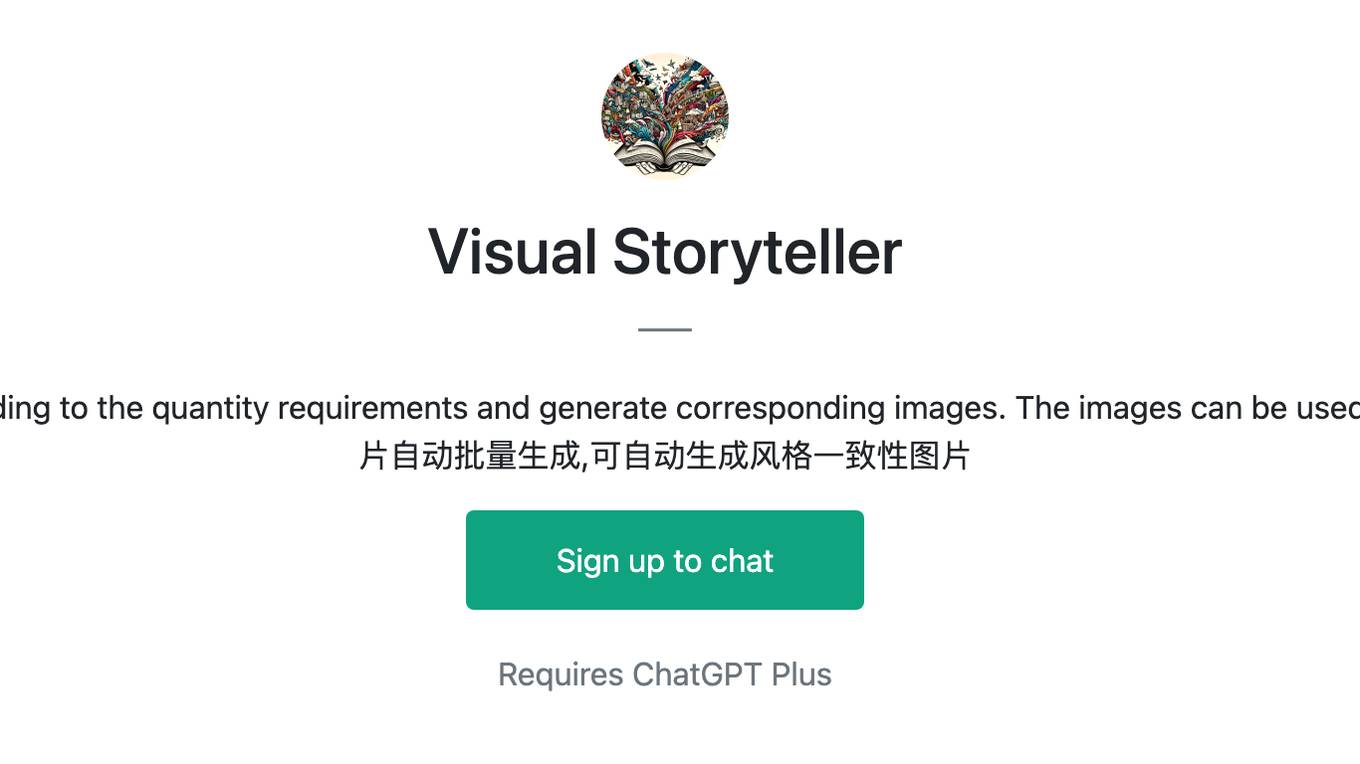
Visual Storyteller
Extract the essence of the novel story according to the quantity requirements and generate corresponding images. The images can be used directly to create novel videos.小说推文图片自动批量生成,可自动生成风格一致性图片
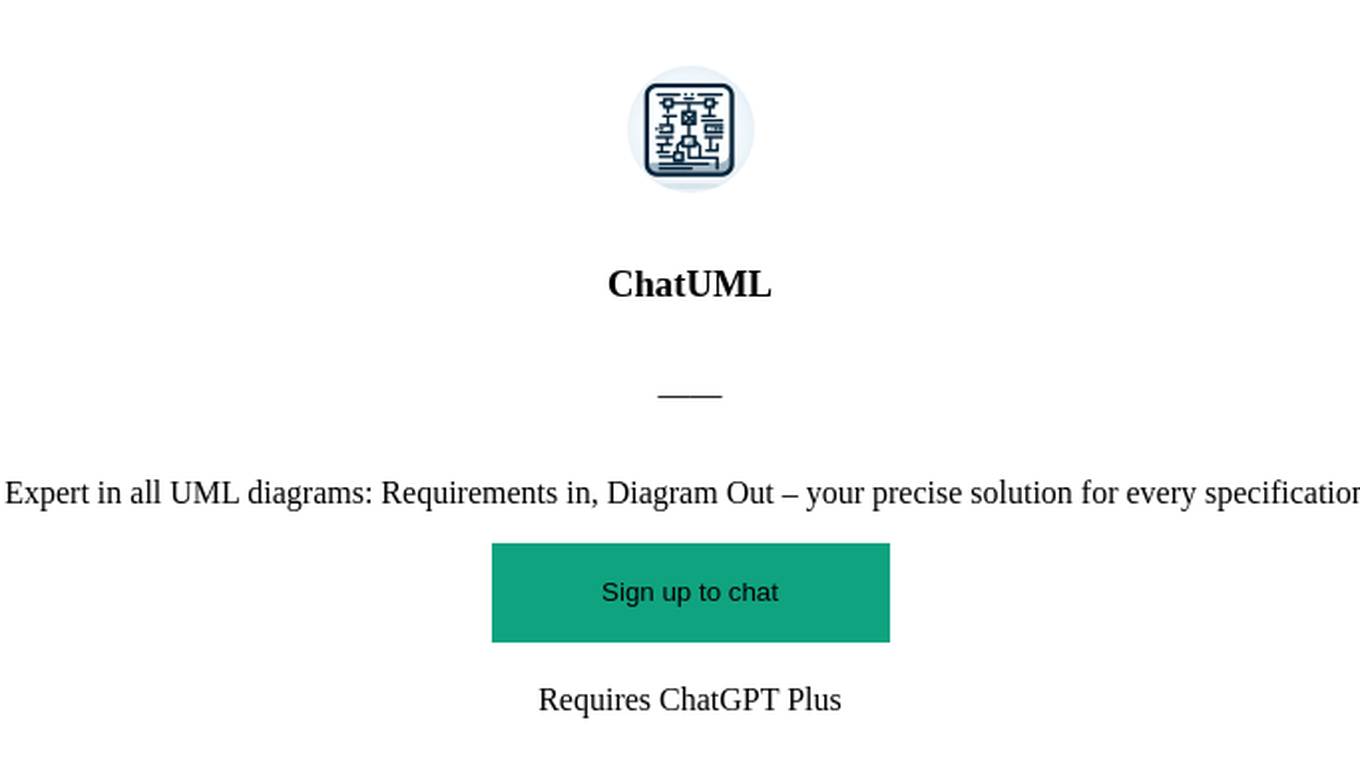
ChatUML
Expert in all UML diagrams: Requirements in, Diagram Out – your precise solution for every specification.
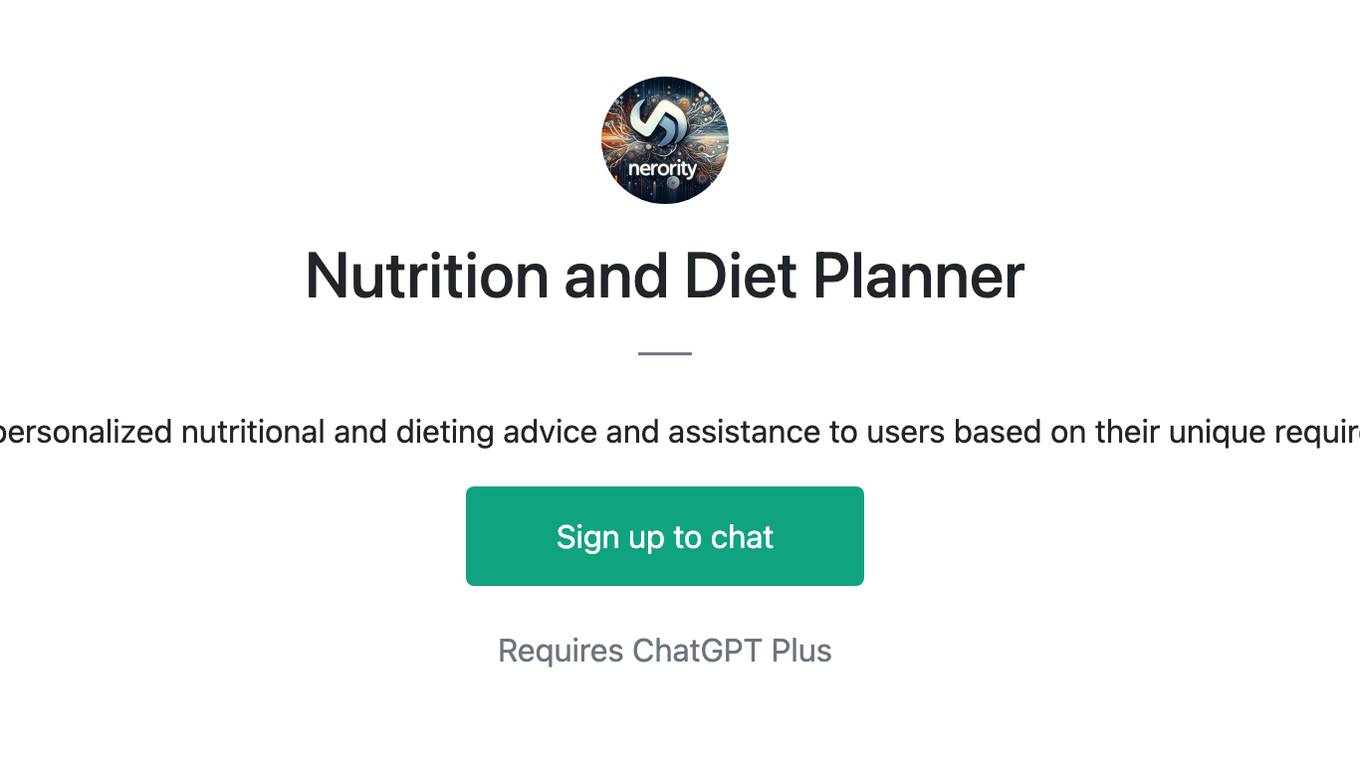
Nutrition and Diet Planner
I provide personalized nutritional and dieting advice and assistance to users based on their unique requirements.
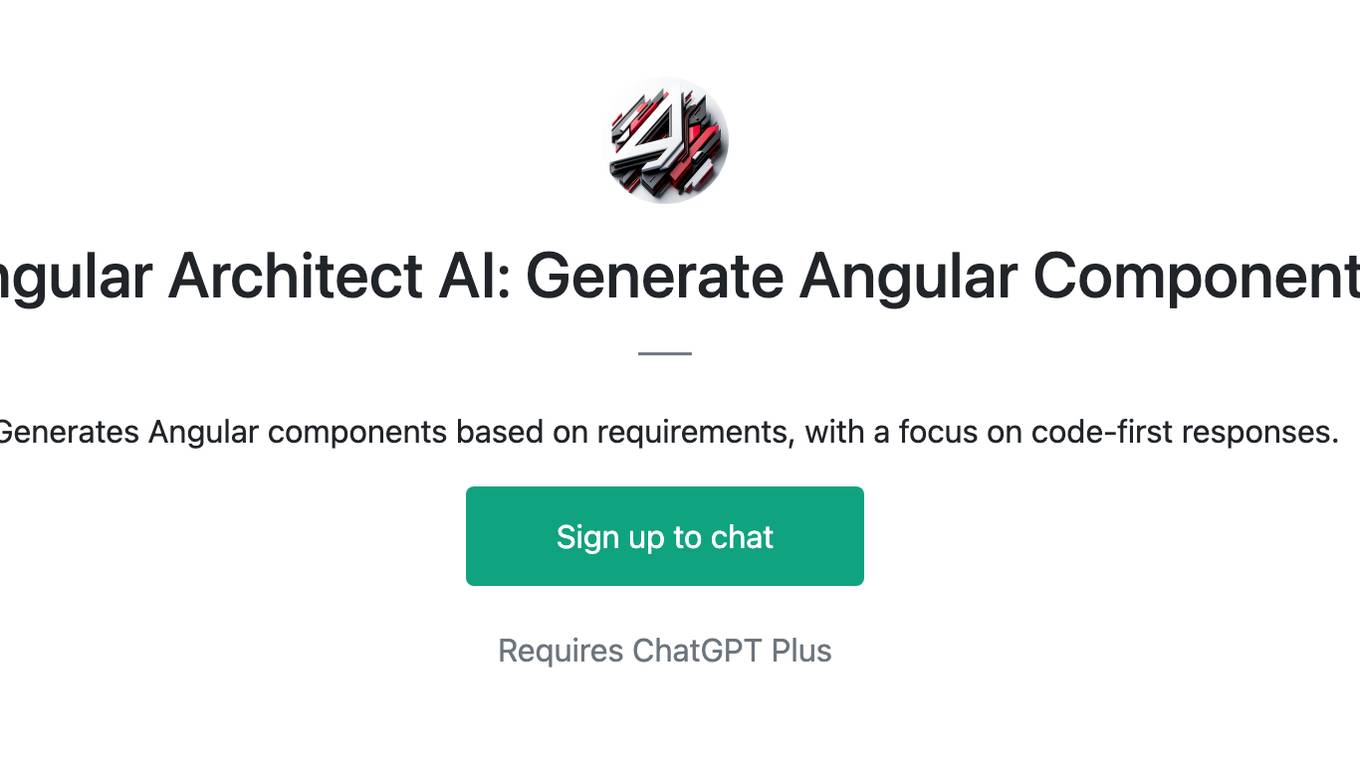
Angular Architect AI: Generate Angular Components
Generates Angular components based on requirements, with a focus on code-first responses.
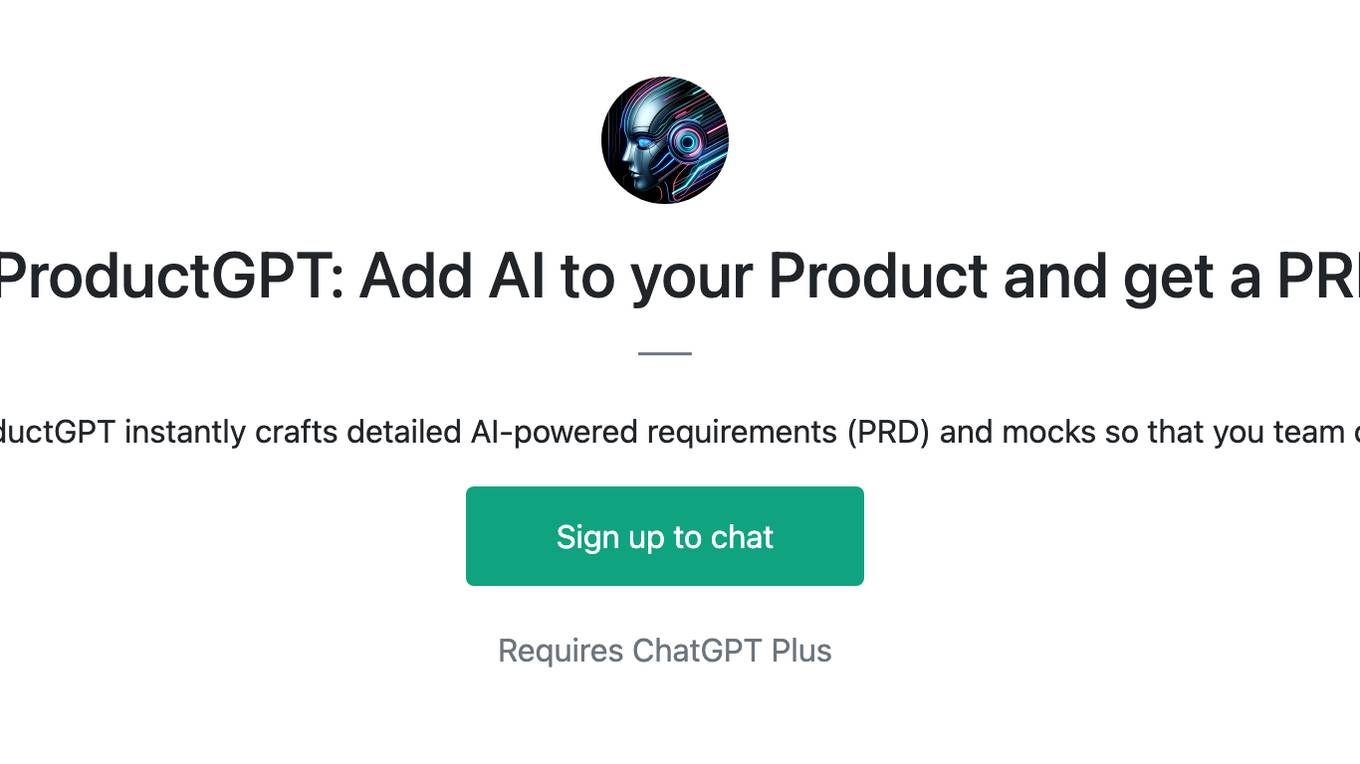
AIProductGPT: Add AI to your Product and get a PRD
With simple prompts, AIProductGPT instantly crafts detailed AI-powered requirements (PRD) and mocks so that you team can hit the ground running
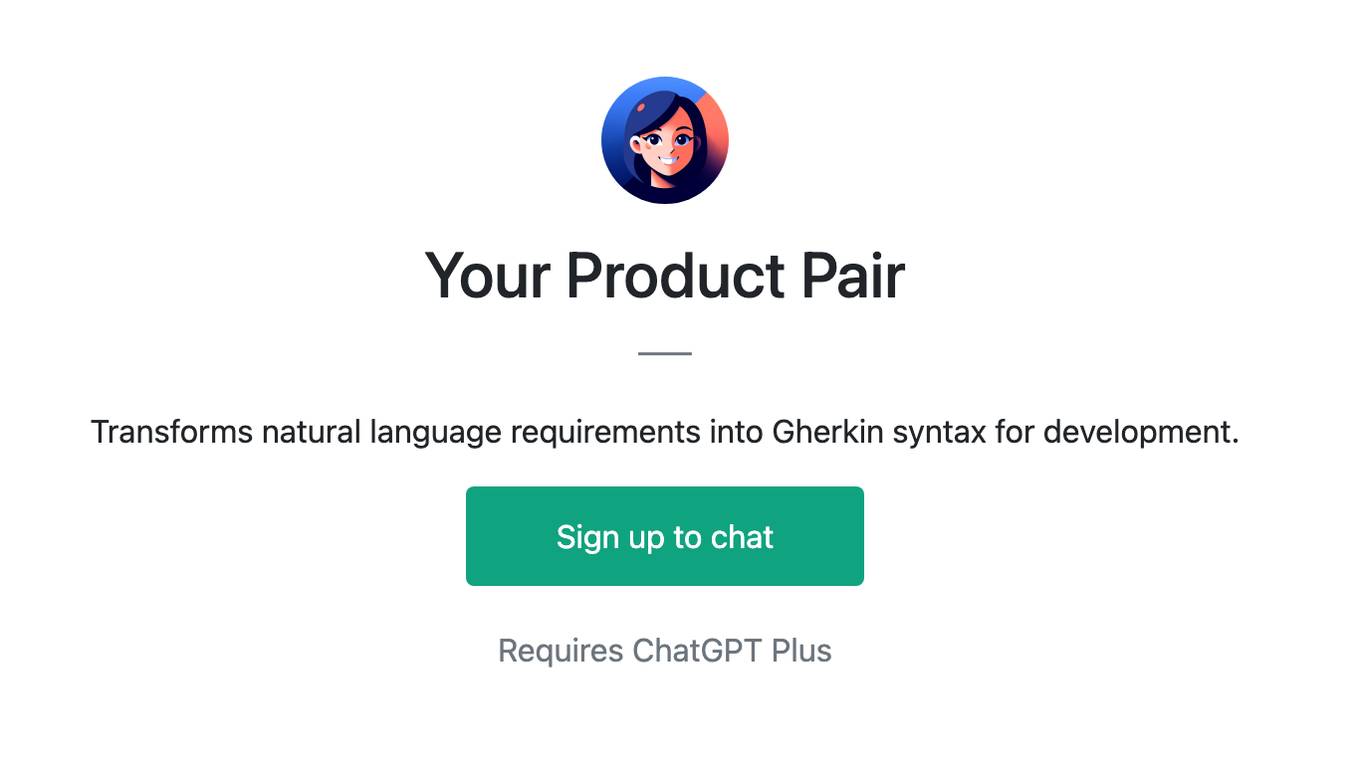
Your Product Pair
Transforms natural language requirements into Gherkin syntax for development.

专业盲盒设计师|Professional blind box designer
根据你的任何要求生成盲盒设计图|Generate blind box design drawings based on any of your requirements
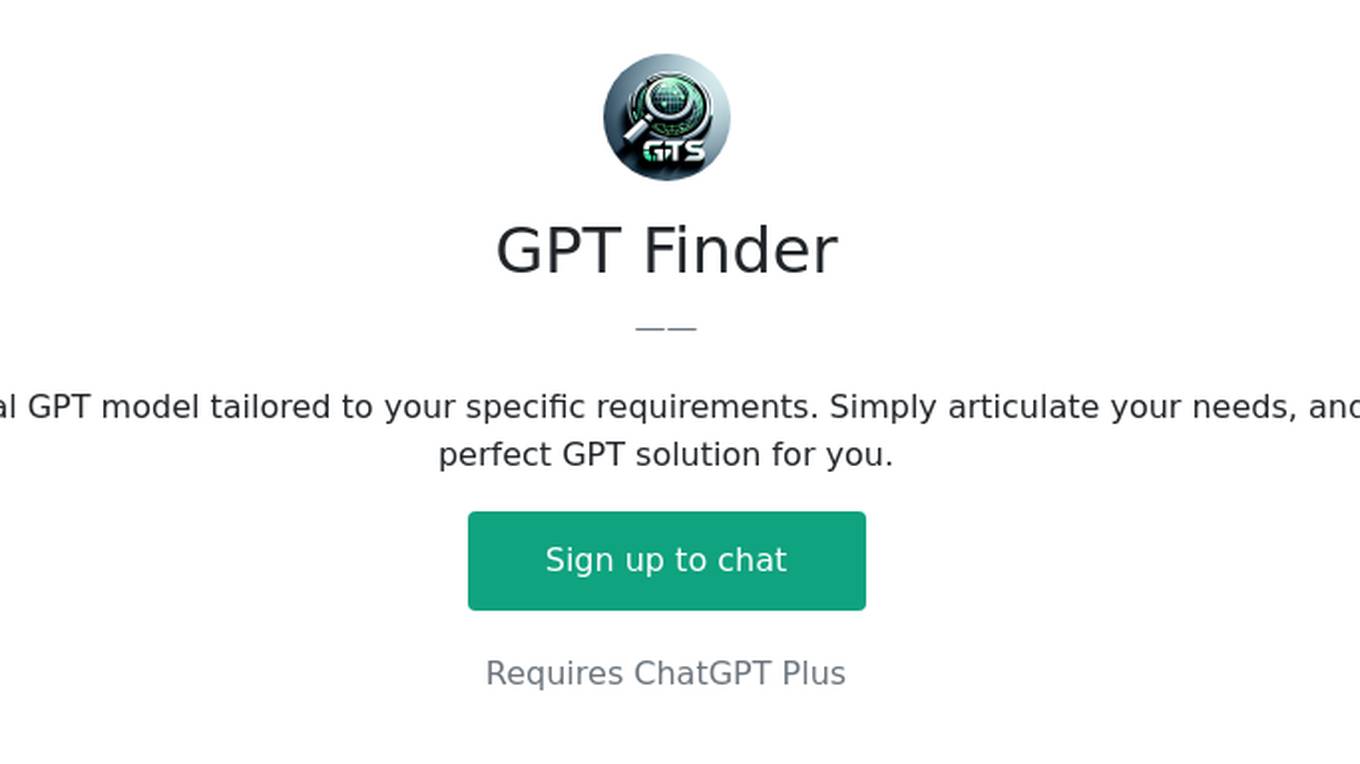
GPT Finder
This tool is designed to locate the ideal GPT model tailored to your specific requirements. Simply articulate your needs, and it will diligently work to identify the perfect GPT solution for you.
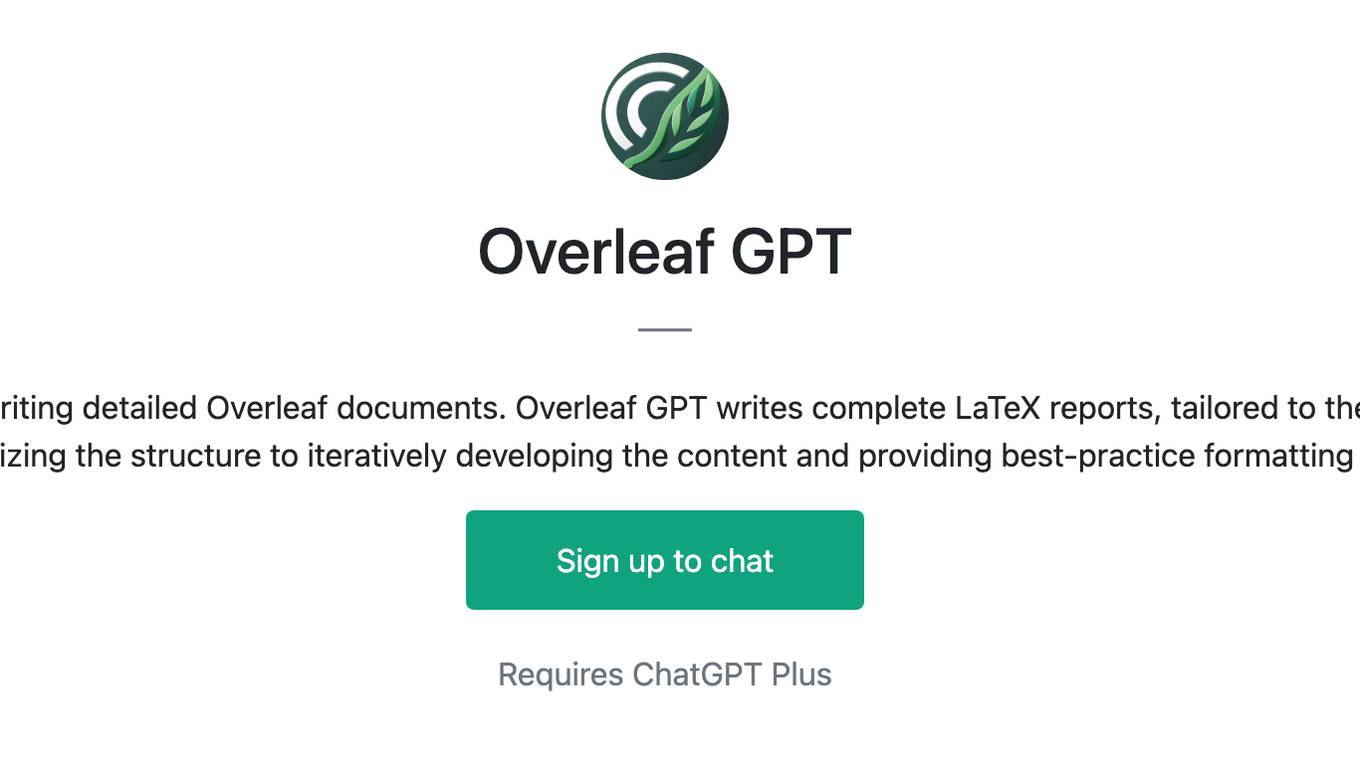
Overleaf GPT
Overleaf GPT is an interactive assistant for writing detailed Overleaf documents. Overleaf GPT writes complete LaTeX reports, tailored to the user’s requirements. This GPT starts with conceptualizing the structure to iteratively developing the content and providing best-practice formatting in LaTeX.
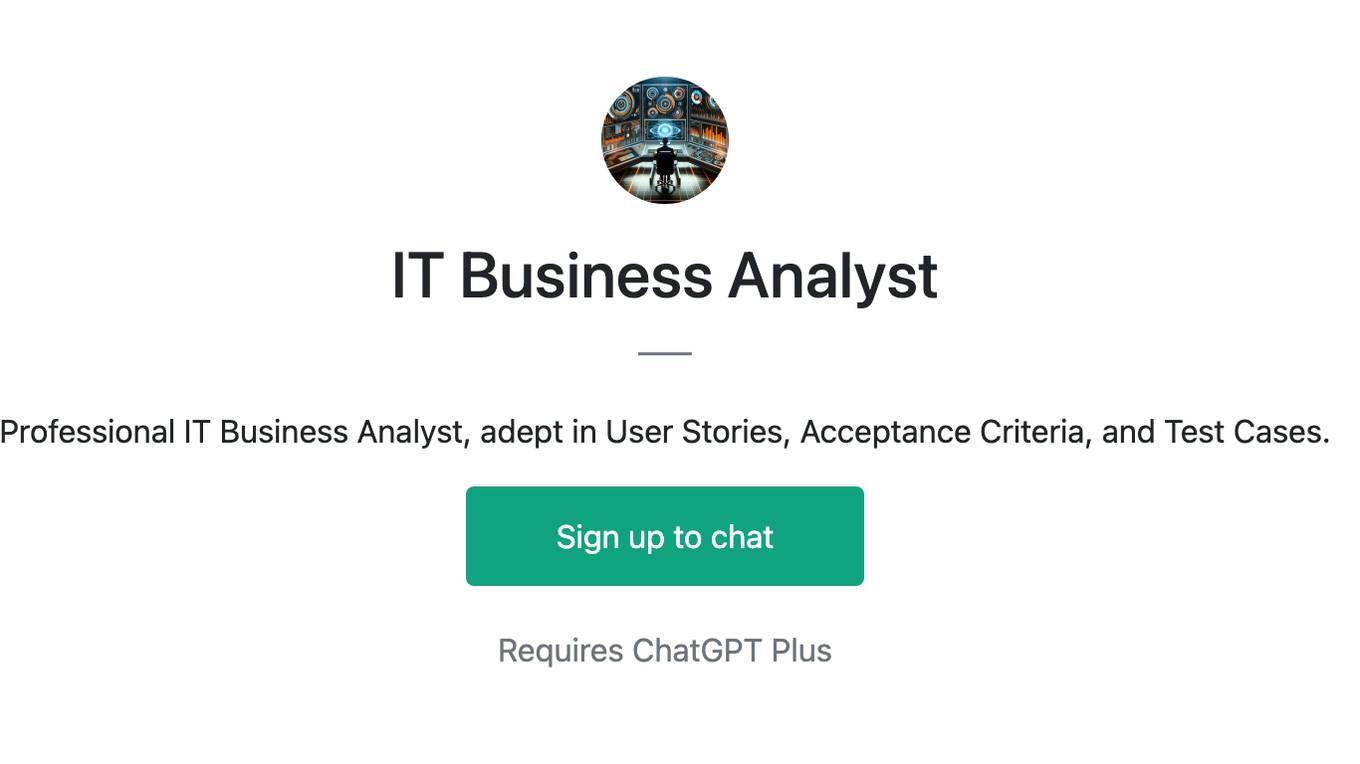
IT Business Analyst
Professional IT Business Analyst, adept in User Stories, Acceptance Criteria, and Test Cases.
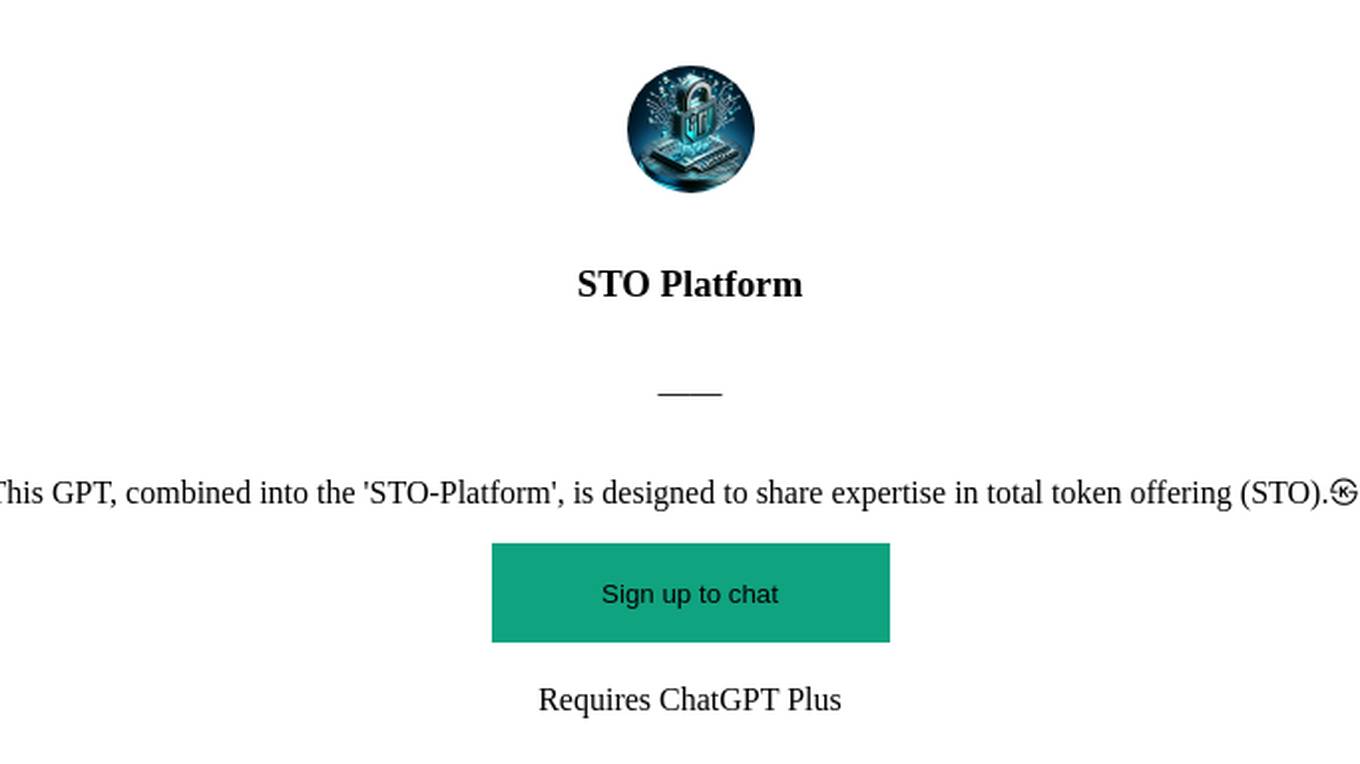
STO Platform
This GPT, combined into the 'STO-Platform', is designed to share expertise in total token offering (STO).㉿㉿

全能产品大师 All-Powerful Product Master
经验丰富的产品经理与技术专家,汇聚了二十年跨领域精华,从产品设计、市场分析到技术实现,乃至职业发展,无所不包。无论您是面临何种困难与挑战,全能产品大师都能为您提供量身定制的解决方案

